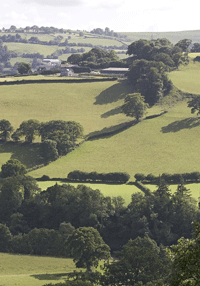Game Fair 2009: Promote yourself more to get on the BBC, farmers told

Farming and countryside organisations need to make more effort to reach out to the BBC and force the organisation to increase its coverage of rural issues.
Speaking at the CLA Game Fair in Leicestershire on Saturday (26 July), representatives from farming and media industries said the BBC did not cover the countryside enough.
But they said the rural community needed to do more to promote itself to journalists and programme-makers.
Speaking at a Countryside Alliance debate on whether the BBC was a friend or foe to the countryside, former One Man and his Dog presenter Robin Page accused the BBC of hating country people.
“The BBC marginalises rural issues,” he said. “It’s outrageous that organisations like the Countryside Alliance aren’t heard about more.
“We want programmes by country people reflecting the countryside. When are we going to see a presenter that actually has some dirt on their boots?”
Simon Hart, Countryside Alliance chief executive, agreed the BBC’s general programming on the countryside was often poor.
“Farming Today is weak, The Archers has an occasional resemblance to rural life, while Countryfile has absolutely no resemblance,” he said.
“They are about rural life rather than for rural people. Where there is opportunity to do something measured and sensible, it ruins it.”
While Mr Hart was critical about the amount of rural programming, he said farmers and countryside organisations should do more to make rural issues newsworthy.
“We are not being clear and articulate enough and our attitude has brought up a barrier between our cause and their agenda,” he said. “We have got to get over that.
“We have got to assess the news agenda and give good stories at the right time. When things go wrong we can’t go complaining about the BBC for covering it – that’s the nature of news.
“We are trying to convince a cynical media, public and politicians about farming and rural issues such as foxhunting and we won’t do it by brow-beating – we need to educate.”
Lembit Opik, MP for Montgomeryshire, agreed rural communities needed to work with the BBC to help journalists understand often complicated issues.
“The BBC initially took a pro-ban decision over foxhunting because it was reflecting the mood of the country,” he said. “We changed that by lobbying and the BBC became more balanced.
“The BBC has been very cautious over country pursuits. If we think that’s unfair then we need to get off our backsides, stop complaining and offer alternative messages.
“We are never going to get prime spots, but we could get some good coverage on a regular basis.
“The BBC is ready to report in a fair way, but we need to reach out and make that relationship robust.”
